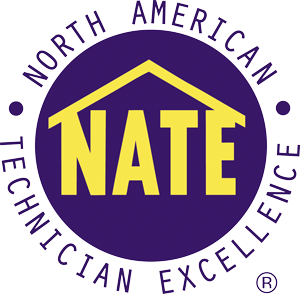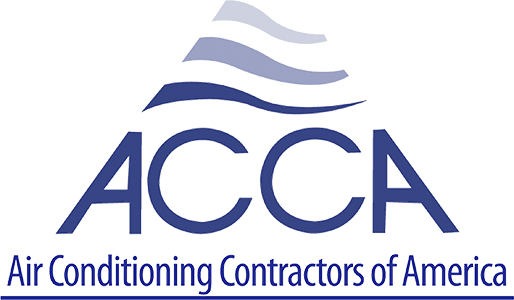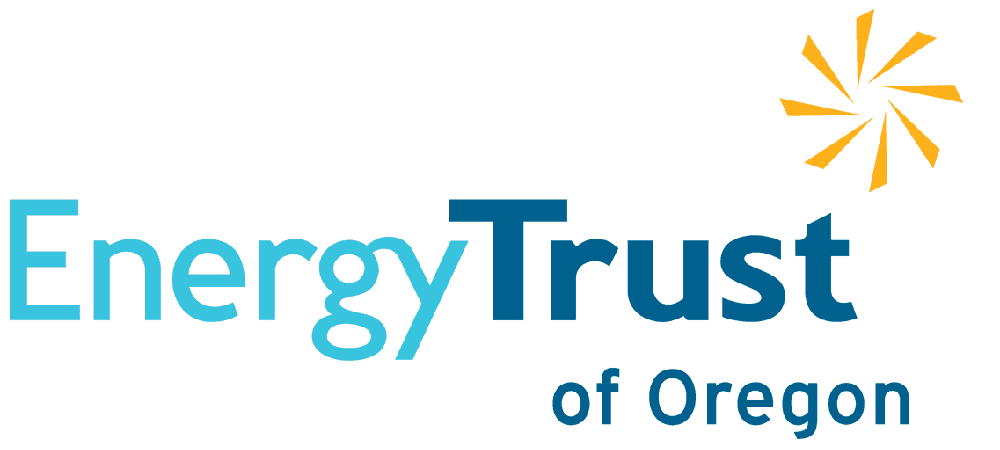Please note that information is still forthcoming and evolving. There are several unknowns at the state level, and changes are inevitable.
What is the Inflation Reduction Act (IRA)?
To help reduce inflation, decrease carbon emissions, and more, the U.S. Government has passed the Inflation Reduction Act (IRA), which includes several tax credits for installing ENERGY STAR® certified home heating and cooling products. The IRA consists of rebates and tax credits for HVAC.
What is the difference between IRA rebates and tax credit offerings?
There are two rebate programs available. Rebates are administered at the state level and favor lower-income households. Federally funded rebates cannot be combined and are intended for immediate, point-of-sale benefit.
There are four tax credits available. Tax credits are federal income tax credits available to anyone with taxable income. Tax credits can be combined, and rebates can be filed for
the following calendar/tax year.
What are the tax credits included in the Inflation Reduction Act?
- Tax Section 25C: Nonbusiness Energy Property Credit
- Provides a tax credit to homeowners equal to 30% of installation costs for the highest efficiency tier products, up to a maximum of $600 for qualified air conditioners and furnaces and a maximum of $2,000 for qualified heat pumps.
- Tax section 25D: Residential Energy Efficient Property
- Provides a tax credit to homeowners equal to 30% of installation costs for ENERGY STAR® geothermal heat pumps until 2032. That percentage drops to 26% in 2033 and 22% in 2034.
- Tax Section 45L: New Energy Efficient Home Credit
- Provides tax credits to builders for meeting specific energy-saving criteria. The tax credits for ENERGY STAR 3.1 certified housing are $2,500 for single-family homes and $500 for multi-family units. To meet the Department of Energy’s Zero Energy Ready requirements, the tax credit increases to $5,000 for single-family and $1,000 for multi-family residences. If prevailing wage requirements are met on multi-family construction, those credits increase to $2,500 and $5,000
- Tax Section 179D: Commercial Buildings Energy-Efficiency Tax Deduction
- Provides a tax deduction for building owners to claim for installing qualifying systems in buildings.
- Up to $14,000 maximum for all.
What are the rebates included in the IRA?
- High-Efficiency Electric Home Rebate Program
- Provides income-depending rebates to low to moderate-income (LMI) homeowners, including:
- Up to $8,000 for all-electric heat pumps
- Up to $4,000 for electrical load service center
- Up to $2,500 for electric wiring
- Provides income-depending rebates to low to moderate-income (LMI) homeowners, including:
- HOMES Rebate
- Provides rebates for energy efficiency upgrades that improve a single-family homes or multi-family building’s overall energy performance.
How should dealers leverage this opportunity?
Research the potential tax credits available, the efficiency requirements to earn the credit and the products that meet those criteria. Then, communicate those potential incentives in every sales presentation.
Do the IRA savings apply to installations done in 2020 and 2021?
No.
CEE
What is CEE?
The Consortium for Energy Efficiency (CEE) is an award-winning non-profit comprised of U.S. and Canadian energy efficiency administrators working together to accelerate the development and availability of energy-efficient products and services. CEE harmonizes program approaches in North America by supporting the production and market adoption of energy-efficient and connected equipment, installation and maintenance guidance, and facilitating program opportunities for each unique customer.
What are the CEE specifications and tiers?
The CEE equipment specifications for air conditioners, heat pumps and furnaces can be found at the following links. Currently, the direction is that the IRS will require eligibility for 25C to adhere to the highest tier below the Advanced tier for each product. It is still unclear whether the IRS will include regional distinctions, North versus South.
- https://cee1.force.com/s/resources?id=a0V2R00000sUQbyUAG
- https://cee1.force.com/s/resources?id=a0V2R00000sUQcXUAW
The highest tier refers to the tier below the “Advanced Tier” with “Tier 1” being the lowest tier if there are multiple tiers listed.
Is CEE the same as NEEP?
No.
In regard to CEE, what about the equipment?
Only M1-rated equipment is applicable.
LMI
What is LMI?
Low-to-Moderate Income (LMI) based on the area median income (AMI).
How is LMI determined and who makes that determination?
LMI is determined at the various levels (state, city, county level). Please refer to your local municipal office for information about your area.
Does a list of LMI by state exist?
LMI is determined at various levels (state, city, county level). Please refer to your local municipal office for information about your area.
Do you have a breakdown on what tax credit the homeowner will receive based on income?
Please refer to the TM Webinar Deck for a breakdown of the income levels required for rebate qualification.
What constitutes a cold climate heat pump?
The performance requirements for Energy Star and cold climate heat pumps can be found here.
25C
Do the heat pump and furnace count for 25C – $2,600 credit, or is it capped at $2,000?
Our understanding is that if both units meet the criteria, both items can be claimed. Please consult with your tax professional for more information
Is there a lifetime cap for a homeowner on this funding?
25C does not have a lifetime cap, but the program expires in 2032.
Do dealers need to provide a complete job breakdown for equipment, material, labor/install?
We are not aware of the documentation that will be required for filing. Please consult your tax professional for more information.
Where does the money for 25C come from?
25C is a federal tax credit. The rebate programs, though funded at the Federal level, are administered at the state level, and are funded separately from the IRA in the amount of $4.3 billion for both rebates.
Is the 25C a $3,200, one-time cap, or is it a yearly cap?
There is no lifetime cap, but there is an annual cap of $1,200 for qualifying products and a separate annual cap of $2,000 for heat pumps. If combining a heat pump with other qualifying products, a homeowner could receive up to $3,200. Please consult your tax professional for more information.
QUALIFICATIONS
Is the tax credit based on a system combo installation? Can you qualify with just a heat pump only installation?
The IRS intends for a qualifying system. If the IRS requires an AHRI certification number, then a heat pump installed would have to be installed on a system combination that meets the requirements. However, we do not know what the IRS will require upon filing.
Does AHRI state if a match-up is eligible for tax credit?
AHRI has not updated their site to match the 2023 tax requirements or the Energy Star 6.1 requirements.
What rating do we use if there is mixed equipment? For example, 2022 indoor unites with new 2023 heat pumps?
All of the requirements for 2023 installations reference M1 ratings. There currently isn’t any direction regarding M-rated equipment.
How does the new IRA tax credit work in homes with multiple systems?
Regardless of the number of systems, the taxpayer is limited by the annual limit. Replacement of one system would likely meet the annual limit so to maximize the tax benefit, they should subsequent systems in later years.
STATE REBATES / Point of Sale
Can Federal rebates be combined with state rebates like NYS clean heat?
Federal rebates cannot be combined with any other federally funded rebate program included in the IRA. We are unaware of any restrictions for other non-IRA programs.
Will dealers have to require financial records at point-of-sale?
We do not know this information at this time.
How are our dealers supposed to administer a POS rebate without verifying household income?
We do not know this information at this time; each state will determine this process.
Are contractors expected to float thousands of dollars on the sales until funded by the state government?
We do not know this information at this time; each state will determine this process.
TIMING
Will customers seeking to take advantage of the rebate programs for 2023 installations be able to retroactively apply for the rebate once their state establishes the program, even in 2024?
No information on this is available at this time. This will be decided at state level.
Are tax credits retroactive to 2022? Would 2022 installations apply similarly on an existing program?
2022 installations that qualified based on the 2022 criteria can be filed for tax credit in the 2023 tax year. Qualified installations occurring in 2023 need to meet the 2023 criteria and would be included in the household’s 2024 tax filings. Please consult your tax professional for more information.
Is there any indication from the IRS that there will be a lifetime limit on payouts under the Inflation Reduction Act, and can a consumer file separate claims for multiple systems?
Please consult your tax professional for more information regarding filing separate claims on multiple systems/homes owned by the consumer.
Talking Points
- Dealers should renew efforts in selling higher-efficiency systems by researching the potential tax credits available and the products that meet the efficiency requirements to earn the credit.
- Dealers should then communicate potential incentives in every sales presentation and, at the same time, consider reaching out to customers who installed qualifying systems between January 1, 2022, and December 31, 2022, and let them know they may qualify for the credit as well.









